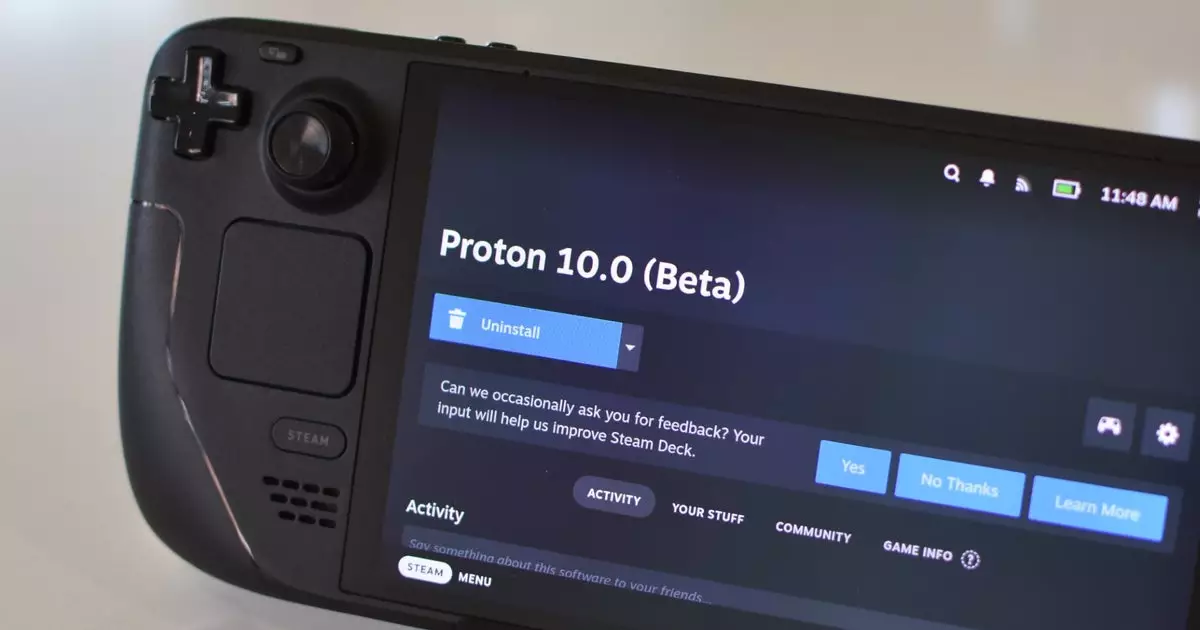The gaming landscape has always been about adaptation and innovation, with developers constantly seeking ways to provide players with richer experiences. The arrival of Proton 10.0—co-developed by Valve and CodeWeavers—marks a significant leap forward for those adventurous enough to venture into gaming on Linux. This long-awaited update not only enhances compatibility but also paves the way for mainstream gaming titles that have historically faced barriers on this operating system. The update’s beta release acknowledges the growing need for robust gaming infrastructures capable of supporting a diverse range of titles, setting a new standard for cross-platform play.
Compatibility Fixes that Matter
What makes Proton 10.0 particularly exciting is its extensive compatibility fixes that promise to breathe fresh life into numerous games. From classic titles like Batman: Arkham Asylum to behemoths such as Grand Theft Auto V Enhanced, the array of games that now run seamlessly on Linux is impressive. This update has prompted a reevaluation of several previously unsupported games, indicating a potential shift in the gaming landscape where Linux cannot only keep pace with Windows but also carve out its own niche.
The significance of addressing compatibility issues cannot be overstated. Many gamers have long felt restricted due to a lack of access to titles they love. With the enhancements provided by Proton, players are more likely to feel that they are not relegated to a secondary platform. Take, for instance, Microsoft Flight Simulator 2024. Previously deemed incompatible with SteamOS, it now stands an excellent chance of becoming a viable option for flight simulation enthusiasts on Linux, fundamentally altering their gaming experience.
Inclusivity for All Hardware Users
While much of the conversation tends to revolve around popular titles, Proton 10.0 also takes into account the diverse hardware setups players may use, including Intel GPUs. The update aims to resolve crashing issues in games like Stalker 2 and Marvel Rivals—issues that have plagued Intel users for far too long. By recognizing the importance of optimizing performance across various hardware configurations, Valve and CodeWeavers not only create a smoother user experience but also foster a more inclusive gaming community.
Moreover, prior complications regarding certain games being branded as potential cheating tools underlines the need for continuous fine-tuning. Such situations can ostracize legitimate players and raise unnecessary barriers. Proton 10.0 appears dedicated to eradicating such obstacles and promoting an environment where gamers can focus on enjoyment rather than frustration.
Why Choose Proton Over Alternative Solutions?
A critical aspect of Proton 10.0 is its positioning against unofficial builds, such as Proton GE, which may offer additional compatibility tweaks but often require additional steps like accessing Desktop Mode. The appeal of Proton’s official beta version lies in its straightforward setup and ease of use, allowing players to avoid convoluted workarounds. With installation as simple as downloading it from the Steam library, it caters to gamers who prioritize efficiency and reliability without sacrificing the gaming experience.
In an era where user experience means everything, Proton 10.0 holds stronger promises of stability and less bug-laden interaction compared to its unofficial counterparts. This reliability is particularly invaluable for gamers eager to dive into their favorite titles without worrying about compatibility hiccups.
The Future of Gaming on Linux Is Bright
As we stand on the cusp of what could be a vibrant era for gaming on Linux-powered devices, the implications of Proton 10.0 extend beyond mere compatibility fixes. They represent a philosophical shift within the gaming community—one that champions inclusivity, accessibility, and unbridled enjoyment. With this update, Valve and CodeWeavers not only validate the significant investment made by Linux users but also encourage a rethinking of platform loyalty. This development signals a burgeoning trend towards diversified gaming options, urging developers to consider Linux as a mainstream platform, rather than an afterthought.
Proton 10.0 emerges as a viable bridge between gaming ecosystems, allowing players not just to participate but to thrive within a landscape that previously marginalized them. As more titles become accessible, the question of “What will you play next?” for Linux users is set to evolve into a thrilling discussion, rather than a constrained query. Gaming on Linux is no longer just a novelty; it’s fast becoming a robust alternative.

